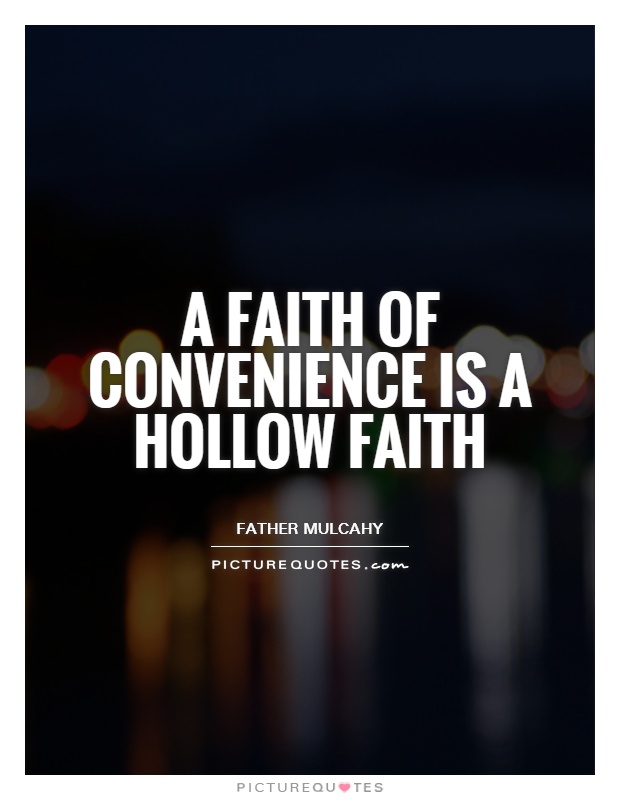A faith of convenience is a hollow faith

A faith of convenience is a hollow faith
Father Mulcahy, a beloved character from the television show M*A*S*H, exemplifies the idea that a faith of convenience is a hollow faith. Throughout the series, Father Mulcahy is portrayed as a dedicated and compassionate chaplain who provides spiritual guidance and support to the members of the 4077th Mobile Army Surgical Hospital during the Korean War. However, there are instances where Father Mulcahy struggles with his own faith and questions the sincerity of his beliefs.One of the most poignant examples of Father Mulcahy's crisis of faith occurs in the episode "Dear Sigmund." In this episode, Father Mulcahy receives a letter from a soldier who is struggling with his own crisis of faith. The soldier questions the existence of a loving God in the midst of the horrors of war and asks Father Mulcahy for guidance. Father Mulcahy is deeply affected by the soldier's letter and begins to question his own beliefs. He confides in Hawkeye, one of the doctors at the M*A*S*H unit, that he is struggling to reconcile his faith with the suffering he witnesses every day.
Father Mulcahy's crisis of faith highlights the idea that a faith of convenience is a hollow faith. Throughout the series, Father Mulcahy is portrayed as a devout Catholic who finds solace in his religious beliefs. However, when faced with the harsh realities of war and human suffering, Father Mulcahy's faith is put to the test. He realizes that true faith requires more than just going through the motions or adhering to religious rituals. It requires a deep and personal connection to one's beliefs, even in the face of doubt and uncertainty.
Father Mulcahy's journey towards a deeper and more authentic faith is a powerful reminder that true faith is not easy or convenient. It requires courage, introspection, and a willingness to confront the complexities of the human experience. A faith of convenience, on the other hand, is superficial and shallow. It is based on outward appearances and empty gestures, rather than a genuine and heartfelt commitment to one's beliefs.












 Friendship Quotes
Friendship Quotes Love Quotes
Love Quotes Life Quotes
Life Quotes Funny Quotes
Funny Quotes Motivational Quotes
Motivational Quotes Inspirational Quotes
Inspirational Quotes